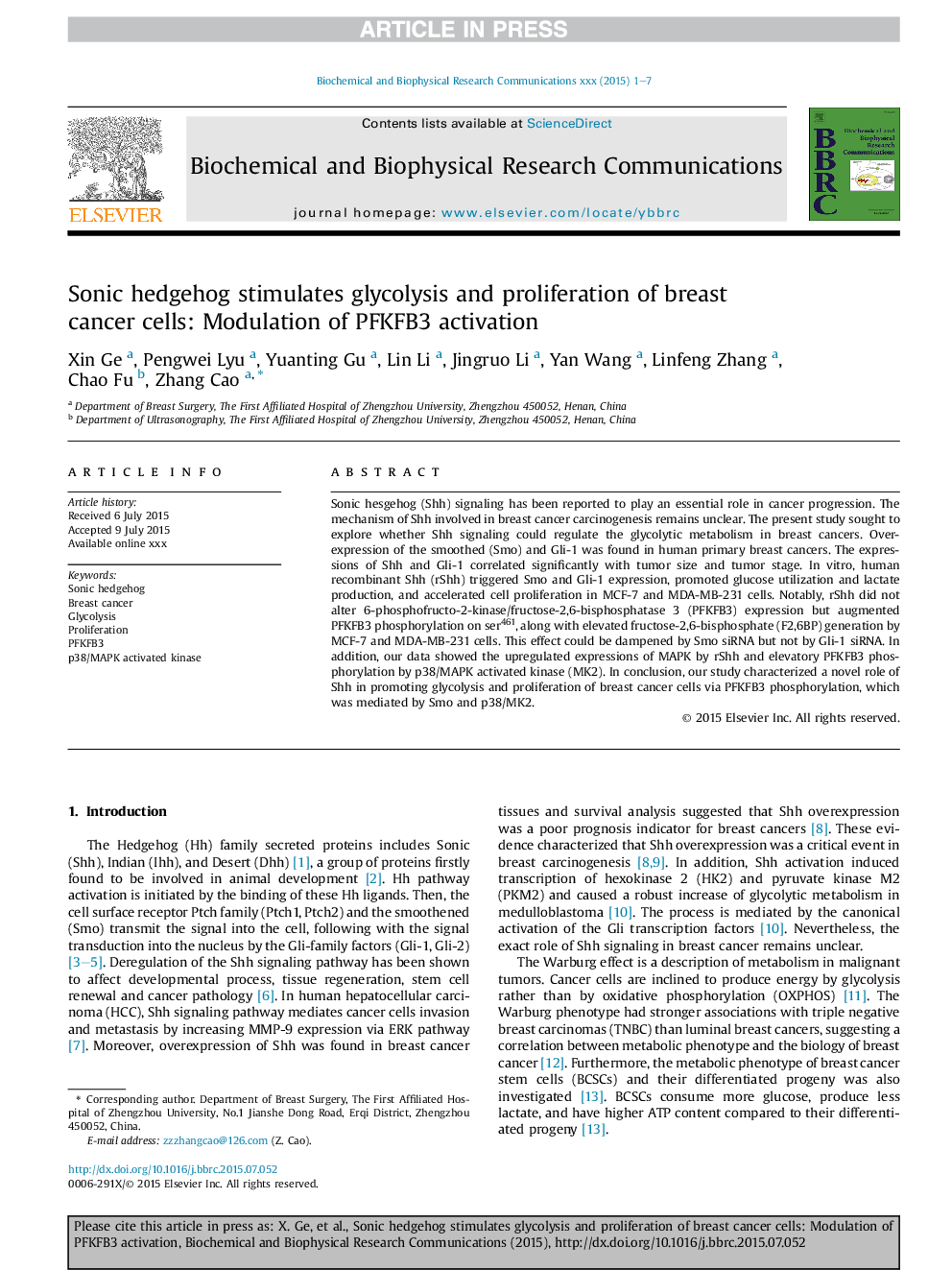| Article ID | Journal | Published Year | Pages | File Type |
|---|---|---|---|---|
| 10750490 | Biochemical and Biophysical Research Communications | 2015 | 7 Pages |
Abstract
Sonic hesgehog (Shh) signaling has been reported to play an essential role in cancer progression. The mechanism of Shh involved in breast cancer carcinogenesis remains unclear. The present study sought to explore whether Shh signaling could regulate the glycolytic metabolism in breast cancers. Overexpression of the smoothed (Smo) and Gli-1 was found in human primary breast cancers. The expressions of Shh and Gli-1 correlated significantly with tumor size and tumor stage. In vitro, human recombinant Shh (rShh) triggered Smo and Gli-1 expression, promoted glucose utilization and lactate production, and accelerated cell proliferation in MCF-7 and MDA-MB-231 cells. Notably, rShh did not alter 6-phosphofructo-2-kinase/fructose-2,6-bisphosphatase 3 (PFKFB3) expression but augmented PFKFB3 phosphorylation on ser461, along with elevated fructose-2,6-bisphosphate (F2,6BP) generation by MCF-7 and MDA-MB-231 cells. This effect could be dampened by Smo siRNA but not by Gli-1 siRNA. In addition, our data showed the upregulated expressions of MAPK by rShh and elevatory PFKFB3 phosphorylation by p38/MAPK activated kinase (MK2). In conclusion, our study characterized a novel role of Shh in promoting glycolysis and proliferation of breast cancer cells via PFKFB3 phosphorylation, which was mediated by Smo and p38/MK2.
Related Topics
Life Sciences
Biochemistry, Genetics and Molecular Biology
Biochemistry
Authors
Xin Ge, Pengwei Lyu, Yuanting Gu, Lin Li, Jingruo Li, Yan Wang, Linfeng Zhang, Chao Fu, Zhang Cao,
